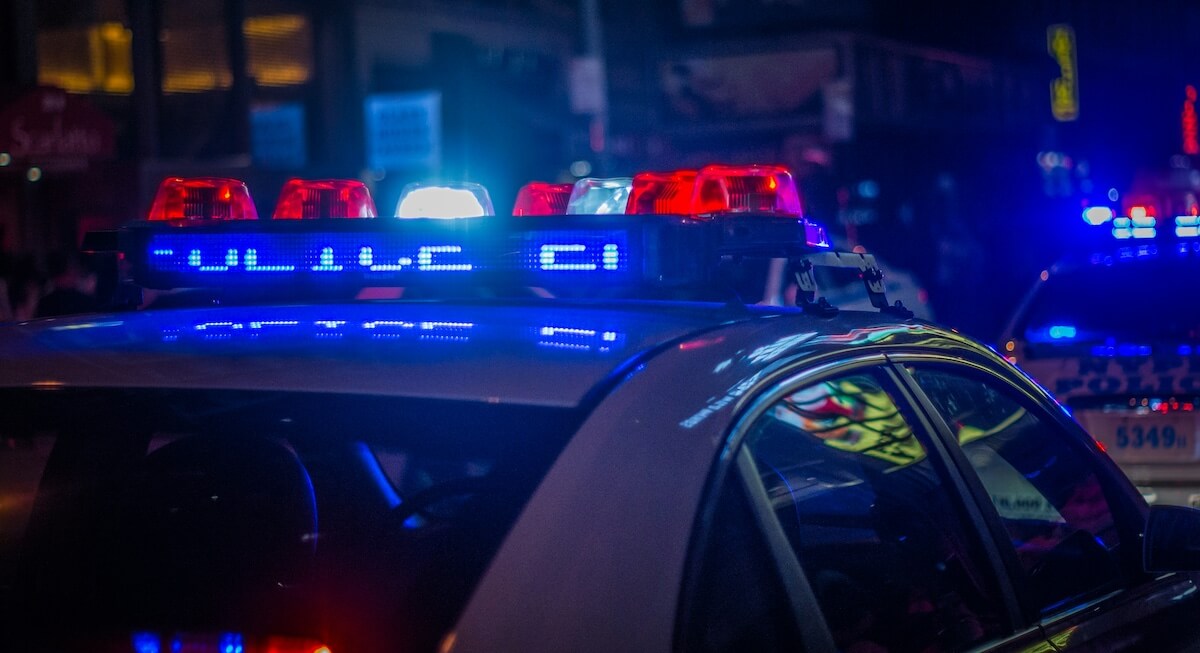Holiday season is upon us. While it’s a joyful time to visit family and friends, all those holiday parties mean more cars on the road—with more drunk drivers and car accidents. In an annual effort to keep the public safe, police departments statewide will increase the number of officers patrolling the roads. They will also set up sobriety checkpoints to detect and deter drunk driving. Here’s what you need to know about how those checkpoints operate and how to assert your rights, if you get stopped.
What Happens at an OUI Checkpoint?
Signage will warn you to slow down and prepare to stop. The road may be narrowed to one or two lanes. An officer will signal for you to stop or will wave you through. If you are stopped, an officer will ask you to show your license and registration. If the officer detects an odor of an alcoholic beverage, slurred speech, glassy/bloodshot eyes, or other factors that raise a reasonable suspicion that you are under the influence of liquor, then you will face more questions. The officer may ask if you have consumed any alcohol. You may also be sent into a secondary screening area, commonly referred to as “the pit,” where the police will ask more detailed questions and attempt to administer a field sobriety test and/or a breathalyzer test.
What Are the Legal Requirements of a Sobriety Checkpoint?
The public has a strong interest in keeping drunk drivers off the road, but the power of police officers has limits. Stopping a vehicle and detaining its occupants constitutes a “seizure” under the Fourth Amendment of the U.S. Constitution and Article 14 of the Massachusetts Declaration of Rights, but the seizure can be a “permissible seizure” without the usual requirements of individualized suspicion or probable cause. To determine whether such seizures are permissible, the courts are required to balance the public’s strong interest in safety against an individual’s right to personal security, free from arbitrary interference by government officials.
In Commonwealth v. McGeoghegan 389 Mass. 137, 143 (1983), the Supreme Judicial Court established the standard for a permissible roadblock stop of a vehicle when the police have neither probable cause nor reasonable suspicion to believe that either the vehicle or its occupants are engaged in criminal activity: “For a roadblock to be permissible . . . the selection of motor vehicles to be stopped must not be arbitrary, safety must be assured, motorists’ inconvenience must be minimized and assurance must be given that the procedure is being conducted pursuant to a plan devised by law enforcement supervisory personnel.”
That plan must include explicit, neutral limitations on the conduct of individual officers. If the plan does not meet that standard, then the stopping of a motor vehicle is arbitrary—and therefore unconstitutional. While the police do not have to disclose the exact location of the checkpoint, they must give public notice of (a) the county in which the checkpoint will be established and (b) the date of the checkpoint. Before the checkpoint opens, the police must have decided how they will administer random stops. For example, the officers may agree in advance that every third vehicle traveling through the roadblock will be stopped and the driver questioned. In court, it is the government’s burden to prove the lawfulness of an OUI roadblock. Any significant deviations from the plan may entitle a defendant to challenge the arrest in court.
What to Do If You Encounter an OUI Checkpoint
If you are stopped at a checkpoint, understand that the police will seek to gather evidence to use against you to support an arrest for operating under the influence. Above all, be polite. Hand over your license and registration without complaint. Be mindful that if you show any signs of impairment, the police may ask that you participate in field sobriety tests. If you refuse, you can be arrested for operating under the influence. In Massachusetts, however, your refusal to submit to a field sobriety tests or to take a breathalyzer test cannot be used against you by the prosecution at trial as evidence of guilt.
You and everyone else on the road are best off if you don’t mix drinking and driving. But if you are arrested and charged with OUI at a checkpoint or in any other scenario, contact Mountain Dearborn. We will seek to determine whether any avenues are available to you to challenge the government’s case. Bear in mind that at trial the government is required to prove beyond a reasonable doubt that your consumption of alcohol diminished your capacity to operate a motor vehicle safely.
Cases that arise out of checkpoints typically have no evidence of erratic driving, such as speeding, crossing into other lanes, or passing through red lights, which can make it harder for the government to prove its case. A knowledgeable defense attorney will explore whether the plan for the checkpoint satisfied all of the requirements set forth by the Supreme Judicial Court—and whether the police actively followed the plan.
Image: Michael Förtsch

